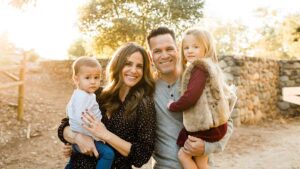From the dugouts of college baseball to the boardrooms of healthcare, Carralejo reflects on a career built on discipline, mentorship, and strategy
Q: You’ve had a remarkable journey from athletics into healthcare leadership. Take us back to the beginning—what shaped your mindset early on?
I grew up in Buena Park, California, and a big part of who I am comes from the discipline and structure of athletics. Playing Division I baseball at Cal State Fullerton, one of the top programs in the country, really set the tone for my adult life. The intensity, the accountability—it wasn’t just about being talented; it was about consistently showing up and performing under pressure. That mindset never really left me.
Q: After your time as a student-athlete, what led you into coaching?
It was a natural extension of what I’d experienced. I wasn’t ready to leave the game, but I also realised early that coaching wasn’t just about tactics or line-ups. It was about shaping young people—giving them tools not just for sport, but for life. I spent 17 years coaching, from high school to college. Winning a CIF Championship and a State Championship was special, but some of the most rewarding moments came off the field—watching a struggling player grow into a leader, or seeing a former athlete return to say, “You helped me believe in myself.”
Q: How did your transition into the healthcare industry happen? Those seem like very different worlds.
On the surface, they do. But if you strip it back, they’re not that different. Whether you’re coaching a team or leading a sales division, it’s about building people—helping them see their potential, setting high standards, and navigating setbacks. I started in healthcare sales over 20 years ago and worked my way up. Today, I serve at the Director level, overseeing strategy and performance across the country. The common thread is people development. Whether you’re in a uniform or a suit, you’ve got to inspire your team to move forward together towards a collective goal.
Q: What were some of the key challenges you faced early in your business career?
When I first entered the corporate world, I had to adjust to a very different kind of pace and politics. In sport, results are immediate. You win or lose that day. Business can be more ambiguous. Metrics evolve. Decisions have longer tails. One challenge was learning to be patient while still staying urgent. Another was realising that not everyone communicates or responds the same way—so I had to evolve my leadership style to reach people where they were. In both environments staying committed to being a process oriented thinker is important.
Q: You’ve mentioned the importance of coaching in all areas of life. How does that show up in your current role?
Every one-on-one I have is a coaching session, whether the person realises it or not. I always try to go beyond the metrics. “What’s blocking you?” “What does success look like for you in 6 months?” We talk a lot about goals, of course, but we also talk about mindset, habits, how they’re managing their energy. High performers don’t just need direction—they need reflection. If someone’s not reaching targets, I don’t assume it’s because of lack of effort. It’s usually a systems or belief problem. This is why I always go back to being process oriented.
Q: What’s something that’s changed in your industry that you’ve had to adapt to?
The expectations around accessibility have shifted massively. We’re in a world where people want real-time feedback, answers, support. You can’t lead from behind a desk. You need to be visible, engaged, and tech-literate. In sales, specifically in healthcare, there’s also been a huge emphasis on ethical alignment and long-term value over transactional wins. That’s a change I’ve welcomed. It forces better conversations and more meaningful relationships.
Q: Looking back, is there a failure that taught you something you carry with you today?
Yes—about 10 years ago, I took over a sales team that had been underperforming. I came in with high expectations, thinking I could fix it with intensity and systems. What I missed was trust. I hadn’t earned it yet. I pushed too hard, too soon. It backfired, and performance dipped further. That was humbling. It taught me that leadership starts with listening. You can’t lead people you don’t understand. It’s always important to meet people where they are.
Q: With such a demanding career, how do you manage work-life balance?
Honestly, it’s never perfect. But I prioritise presence. When I’m home with my wife Katie and our three kids—Charlie, Cash, and Sage—they get my full attention. I coach their teams. I attend their games. I want to be someone they remember as being there, not just someone who provided. That means sometimes stepping away from emails or calls and trusting that the team I’ve built can run without me for a bit. That’s real leadership too—knowing when to step back.
Q: What advice would you give to someone entering healthcare sales or leadership roles today?
Know your values early. Learn how to listen deeply. And be willing to evolve. Industries change, people change—your job is to adapt without losing your integrity. And never forget: it’s people first, always.
Final thoughts
George Carralejo’s career reflects the rare balance of competitive drive and grounded mentorship. Whether in baseball dugouts or corporate strategy meetings, his approach remains constant: lead with intention, coach with clarity, and never stop learning.
Read more:
Interview: George Carralejo on Leadership, Coaching, and a Career Fuelled by Purpose














